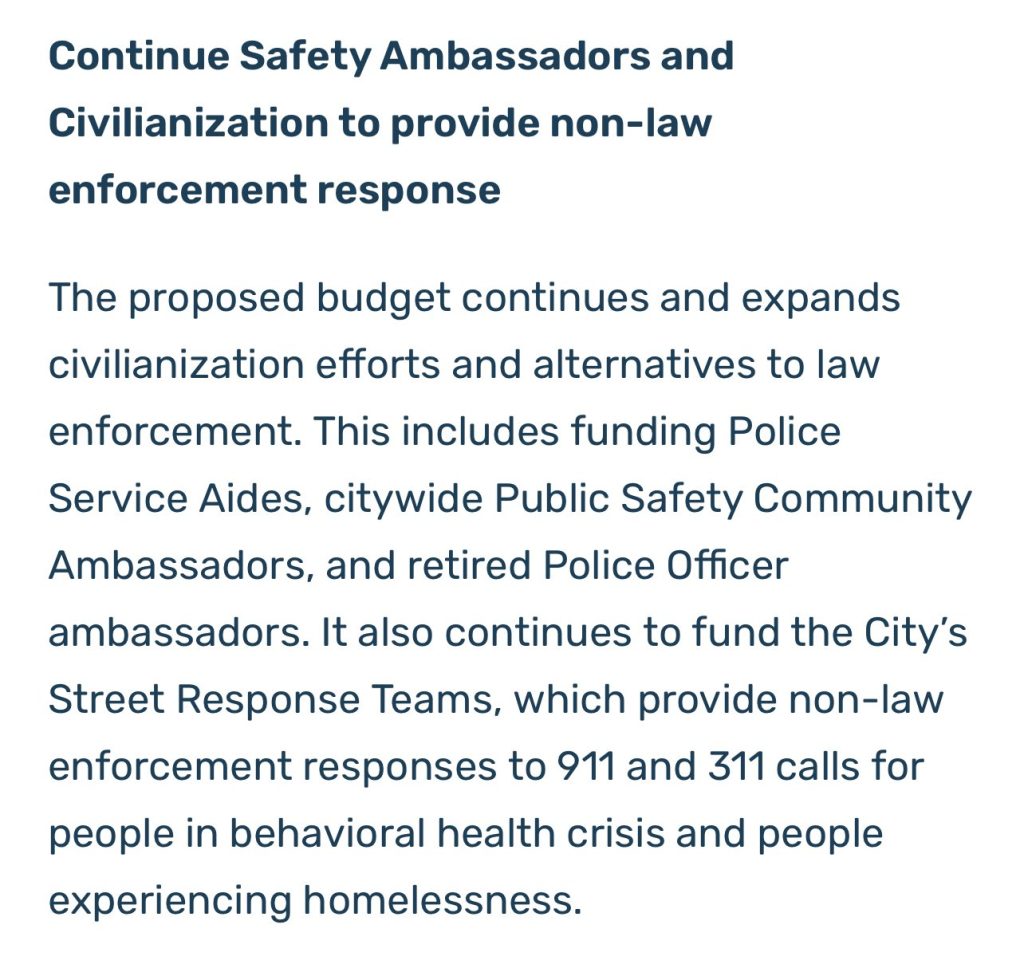In San Francisco, the criminal justice system is under increasing scrutiny as public safety becomes a growing concern. Despite the public assurances from Mayor London Breed and Sheriff Paul Miyamoto, their actions tell a different story. While they claim to prioritize public safety, their agenda of civilianizing law enforcement is undermining the very foundations of security and accountability, putting the community at greater risk.
The Reality Behind Electronic Monitoring
One of the most glaring examples of this discrepancy is the city’s electronic monitoring system. At first glance, electronic ankle monitors give the impression of strict supervision for individuals under house arrest. However, the reality is far from this illusion.
- Overburdened Deputies: Astonishingly, one or two deputy sheriffs are tasked with monitoring around 500 individuals on electronic ankle monitoring. This unmanageable caseload renders the supervision ineffective, allowing many to exploit their freedom and engage in criminal activities without real consequences.
- False Accountability: The inadequate monitoring system creates a facade of accountability. In reality, those on electronic monitoring face little to no genuine oversight, leading to a system that fails to prevent recidivism or protect public safety.
Unseen and Unaddressed Warrants
The illusion of accountability extends to the handling of outstanding warrants. The Warrants Service Unit, responsible for locating and apprehending individuals with outstanding warrants, is critically understaffed.
- Insufficient Personnel: With only five deputies in the unit, the resources are grossly inadequate to manage the increasing number of outstanding warrants. This understaffing results in a significant backlog, further eroding the effectiveness of the criminal justice system.
- Delayed Justice: The lack of timely action on outstanding warrants means that many offenders remain at large, undermining the system’s credibility and the public’s trust.
A Growing Crisis: Overcrowded Jails and Understaffed Programs
When this issue was first brought to light, approximately 1,600 individuals were participating in alternatives to incarceration programs. Today, the situation has worsened, with the jail population rising from the 1,100s to 1,270, and 1,803 participants now in Community Programs. This trend highlights the severe understaffing and inadequate infrastructure of San Francisco’s jails.
- San Bruno Annex: The San Bruno Annex is not at full capacity due to needed upgrades. Even if it were fully functional, the lack of deputized staff means it cannot operate effectively.
- Shift to Community Programs: Due to the lack of space and staff in jails, the SFSO is increasingly relying on Community Programs. However, this shift is not a solution but a symptom of deeper systemic issues. Without sufficient deputies to supervise these programs, they become ineffective, creating a cycle of insufficient oversight and increased criminal activity.
The Breed-Miyamoto Agenda: Civilianizing Law Enforcement
Mayor Breed and Sheriff Miyamoto have consistently promoted a vision of public safety. Yet, their actions contradict their statements. Instead of investing in the recruitment and hiring of deputies, they are pushing for the civilianization of law enforcement. This approach is fundamentally flawed and dangerous for several reasons:
- Lack of Real Supervision: Civilianizing law enforcement reduces the number of trained deputies available for critical supervision and enforcement roles. This diminishes the system’s ability to monitor and manage offenders effectively.
- Increased Public Risk: The reliance on civilian programs without adequate oversight emboldens offenders, leading to higher recidivism rates and attracting criminals from outside areas. The lack of genuine consequences for criminal behavior creates a public safety hazard.
San Francisco: The Worst-Run City in the U.S.
Adding to the city’s woes, a recent report by the SF Examiner highlights that San Francisco is now ranked as the worst-run city among the 149 biggest in the U.S., according to WalletHub’s analysis of operating efficiencies. The ranking, based on a “quality of services” score divided by each city’s per-capita budget, assessed financial stability, health, safety, economy, and infrastructure/pollution. The categories included 36 metrics, such as high school graduation rates, public hospital system quality, and crime rates. This damning report underscores the systemic failures in San Francisco’s management and further illustrates the consequences of inadequate leadership and resource allocation.
The Mirage of Public Safety
The consequences of this flawed approach are severe. The erosion of public trust, escalating crime rates, and the overall inefficacy of the criminal justice system are clear indicators that the current strategy is failing. The public is becoming increasingly aware that the promises of Mayor Breed and Sheriff Miyamoto are nothing more than a “fugazzi” – an illusion of safety without substance.
A Call for Real Change
San Francisco’s criminal justice system is at a critical juncture. The current path of civilianizing law enforcement, supported by Mayor Breed and Sheriff Miyamoto, is jeopardizing public safety and undermining the integrity of the system. It is imperative to prioritize the recruitment and hiring of deputized staff, ensure adequate resources and funding, and restore effective monitoring and enforcement mechanisms.
Without these changes, the illusion of consequences will continue to erode public trust and compromise the safety of the community. It is time for genuine action that aligns with the promises made to the people of San Francisco, ensuring a criminal justice system that truly protects and serves its citizens.

